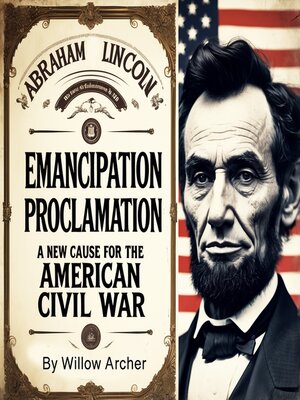The Emancipation Proclamation
audiobook (Unabridged) ∣ Abraham Lincoln – A New Cause for the American Civil War
By Willow Archer

Sign up to save your library
With an OverDrive account, you can save your favorite libraries for at-a-glance information about availability. Find out more about OverDrive accounts.
Find this title in Libby, the library reading app by OverDrive.



Search for a digital library with this title
Title found at these libraries:
| Library Name | Distance |
|---|---|
| Loading... |
This audiobook is narrated by a digital voice.
The Emancipation Proclamation, issued by President Abraham Lincoln on January 1, 1863, stands as one of the most consequential documents in American history, transforming a war initially fought to preserve the Union into a moral crusade for human freedom that would fundamentally alter the character of American society. The document's journey from conception to implementation reflected the complex political, military, and moral pressures that shaped Lincoln's presidency during the nation's greatest crisis, as the president navigated between competing demands for immediate abolition and concerns about constitutional authority, military necessity, and political survival in a deeply divided nation.
The institution of slavery had cast a shadow over American politics and society since the nation's founding, creating contradictions between the ideals of freedom and equality proclaimed in the Declaration of Independence and the reality of human bondage that persisted in half the country. By 1860, approximately four million enslaved African Americans labored in the Southern states, their unpaid work generating enormous wealth that underpinned the region's economy while creating social and political structures that depended on the systematic denial of human rights. The expansion of slavery into new territories had become the defining political issue of the 1850s, contributing to the breakdown of national political parties and the rise of sectional tensions that would ultimately lead to civil war.
Lincoln's personal evolution on the slavery question reflected both his moral convictions and his political pragmatism as he sought to find constitutional means for addressing what he privately considered a moral evil. As a young politician in Illinois, Lincoln had expressed his belief that slavery was wrong while acknowledging the constitutional protections that existed for the institution in states where it was already established.







